How much electricity does a pressure washer use? How to save money when using one
It’s cheaper than you think

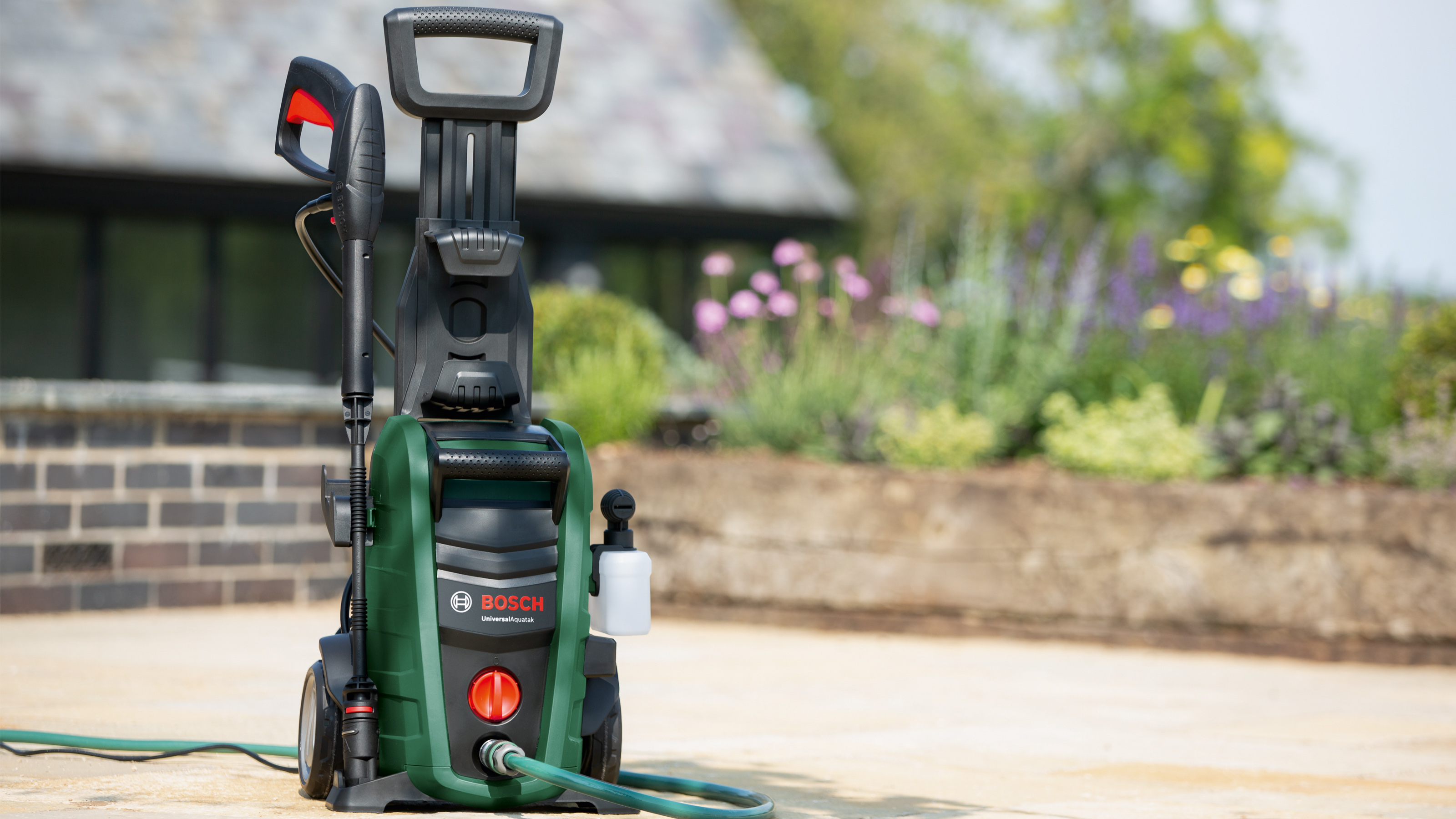
Sign up to our newsletter for style inspiration, real homes, project and garden advice and shopping know-how
You are now subscribed
Your newsletter sign-up was successful
If you’re toying with the idea of buying a pressure washer, we don’t blame you. This handy garden gadget is a worthwhile investment, but how much electricity does a pressure washer use, really?
The best pressure washers can make a doddle of cleaning a patio, hosing down a driveway, or just sprucing up your garden furniture before the summer months. In most cases, all you need to do is attach it to your outside tap and watch as the dirt and grime are zapped off the surface. But like all electrical appliances, a pressure washer will use energy.
And while it’s easy to pick up an affordable pressure washer, knowing how much electricity a pressure washer uses and how much that will affect your energy bills is something you need to know before whipping out your credit card. So, we’ve done the sums for you.
How much electricity does a pressure washer use?
It’s no secret that a pressure washer will use electricity and ultimately cost you money. But how much it costs depends on the pressure washer you have and your personal circumstances.
Nick Ee, product and training manager at BLACK+DECKER explains, ‘The energy consumption of a pressure washer depends on how it’s used. For example, if you have a more powerful pressure washer used at higher pressure washing settings or for longer durations will consume more energy than smaller, less powerful units used intermittently or at lower pressure settings.’
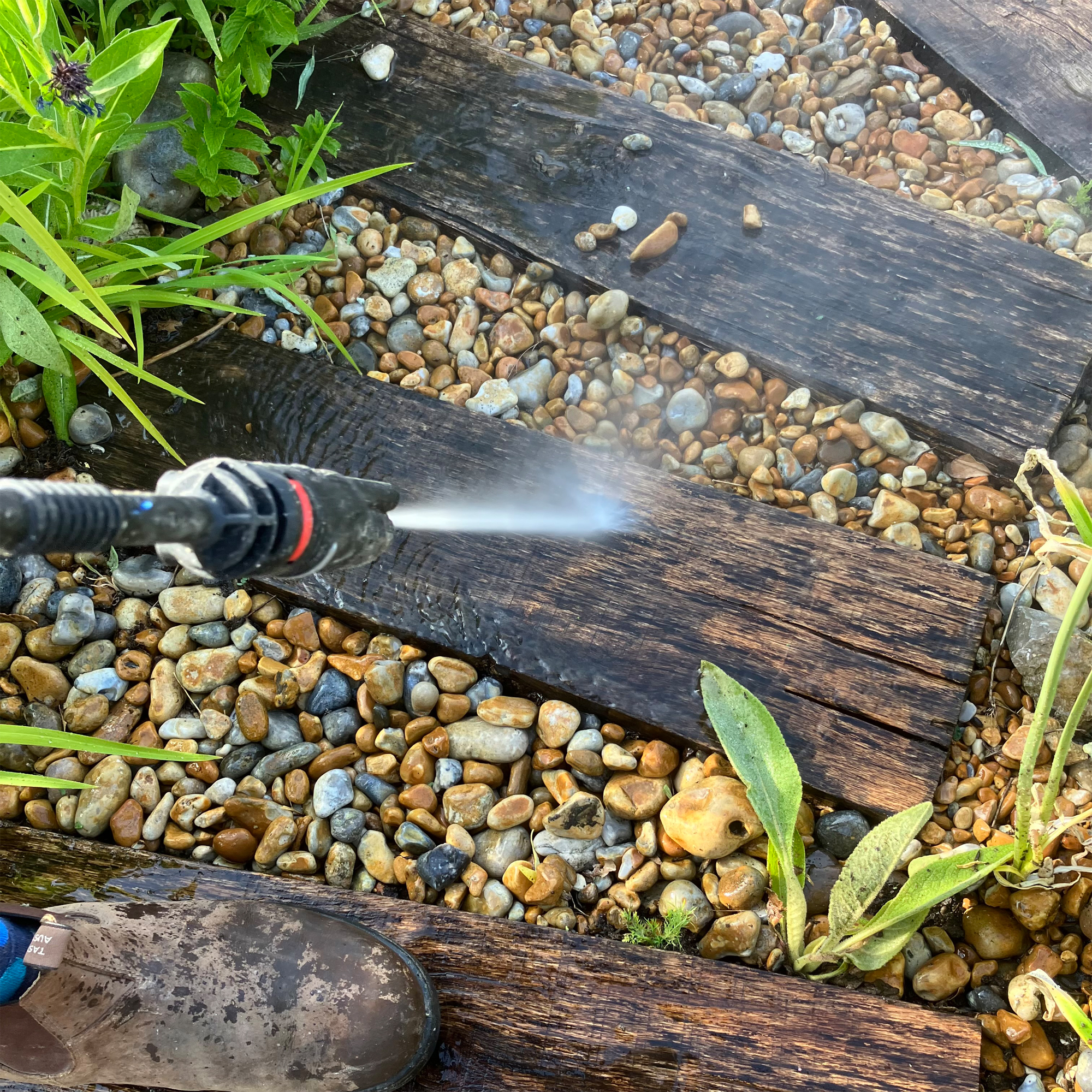
To accurately know how much electricity a pressure washer uses, therefore, you need to know how much you pay for your energy and the wattage of your pressure washer (which is normally between 1500-3000w).
As of 1st April 2024, the energy price cap from Ofgem dictates that the maximum price per kWh of electricity will be 24.5p. This is the unit price for dual fuel customers who pay their bills by direct debit, and this will be the case until 30 June 2024, when the price cap will change once again.
Sign up to our newsletter for style inspiration, real homes, project and garden advice and shopping know-how
Using this information, we can then calculate how much electricity different pressure washers use and how much this will cost you:
- An example 1500W pressure washer would use 1.5kWh, meaning that an hour’s usage would cost 37p.
- An example 1800W pressure washer would use 1.8kWh, meaning that an hour’s usage would cost 44p.
- An example 2100W pressure washer would use 2.1kWh, meaning that an hour’s usage would cost 51p.
- An example 3000W pressure washer would use 3kWh, meaning that an hour’s usage would cost 74p.
Of course, you also need to take into account your electricity standing charge, which is 60.10p per day, as well as the extra water you’ll be using (potentially pushing your water bill up in the process).
With this price in mind, you might be wondering whether it would be better to clean a patio without a pressure washer instead. But Tom Clifford, garden landscaping expert at Gardenstone, says that spending a little extra money can be worth it in the long run.
‘The cheapest method for cleaning your driveway is to use the age-old method of warm, soapy water and a hard bristle brush. However, this isn’t necessarily the most efficient method,’ he says.
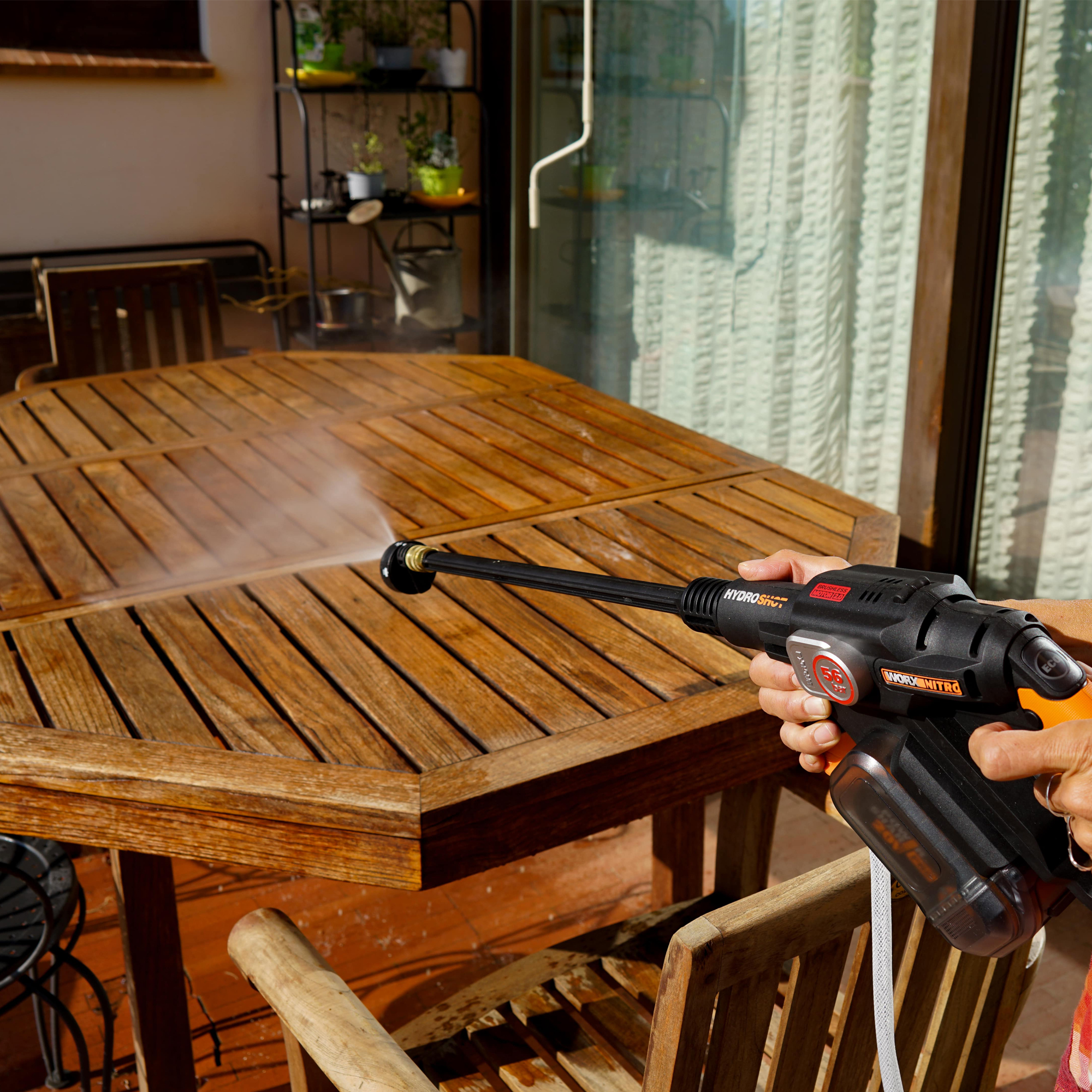
‘Power washing a two-car driveway usually takes on average under one hour. Of course, this depends on multiple factors, like the size of your driveway and the amount of dirt that has accumulated.'
'However, hand washing your driveway is much more time-consuming for the average two-car driveway, and it can take from two to three hours to clean the surface of your driveway to the same standard as a pressure washer.’
Of course, if you have spare time to hand-clean your patio or your driveway, cleaning by hand will certainly save you some money. But if Tom were to choose between the two, he’d always opt for this handy garden gadget.
‘Although the cost of power washing is higher due to electrical usage, it will save an average of two hours while cleaning your driveway to a much higher standard,’ he adds.
How to save money when using a pressure washer
If you’re intrigued by the prospect of a pressure washer but are still worried about your energy bill, there are ways to save money when using a pressure washer. In fact, you can:
Use a cleaning agent: Although the pressure of the water alone should be enough to clean your patio, driveway, or even your garden furniture, using a cleaning agent will help to loosen the grime on these surfaces. This will ultimately reduce how long you’ll need to use the pressure washer, reducing your energy consumption.
Buy a self-priming pressure washer: Nick says, ‘If you’re looking to save on water bills, I would recommend investing in BLACK+DECKER’s 2000W Corded Pressure Washer. The self-priming feature allows you to use water from any source, for example, a bucket, lake, or a pool, so the machine can be used even without access to a tap.’ So, while you’ll still be using electricity, you won’t add more to your water bill at the same time.
Choose a cordless pressure washer: Did you know that cordless pressure washers exist? These pressure washers run on a battery rather than being plugged into the mains. And while these pressure washers might not have as much power as you’d like, they could offer a respite from a hike in your electricity bills.
Store it properly: One of the best places to store a pressure washer is in a shed or garage, but these areas can get extremely cold - especially in the winter months. If you don’t empty out your pressure washer before storing, the excess water can freeze. This can damage the unit and cause the pressure washer to overheat or overcompensate as a result. To avoid this, expel any remaining water before storing it in the cold.
The best pressure washers - our top picks
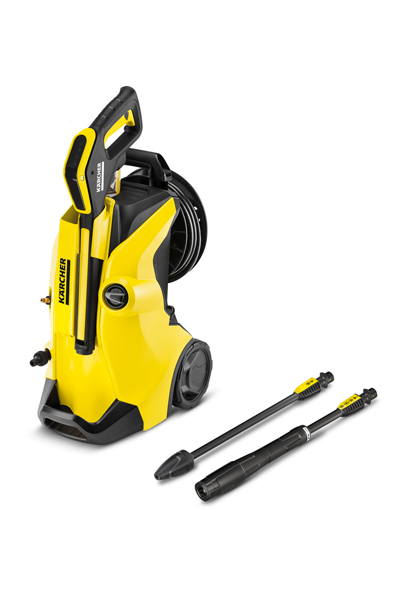
Crowned the 'best overall' pressure washer in our guide, this Karcher offering is powerful yet affordable. At 1800 watts, it will cost you 44p an hour to use.
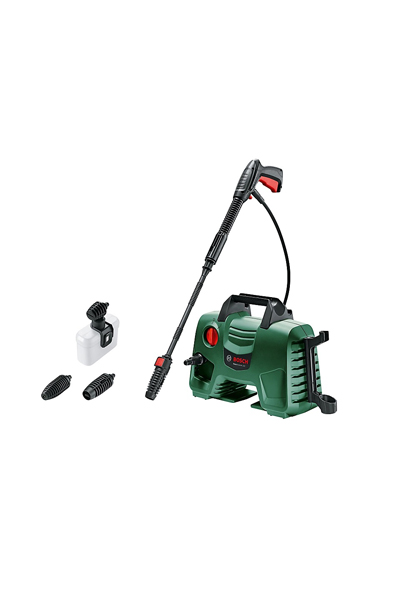
One of the cheapest options on the market right now is the Bosch Aquatak Corded Pressure Washer - not only in terms of the overall price but also in terms of running cost. Yes, this will one will set you back just 25p per hour.
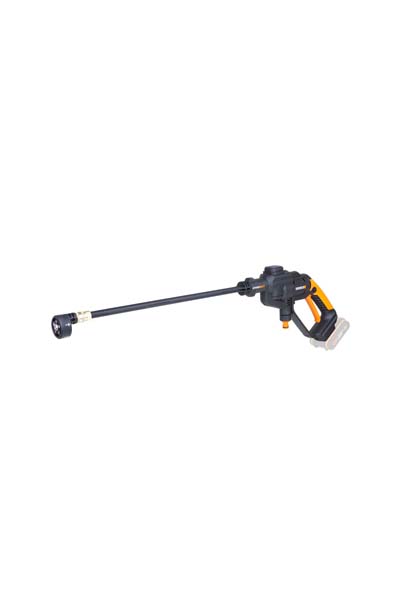
If you're looking for a corded pressure washer, this Worx option has got you covered. There's absolutely no power or water connection required, and you just have to charge up the batter when it runs out of juice.
FAQs
How much does it cost to run a pressure washer for 1 hour?
This all depends on the wattage of the pressure washer itself and the energy price cap. At the time of writing, a 1500W pressure washer would use 1.5kWh, which will set you back 37p an hour.
If you choose a more powerful pressure washer, it’ll cost you more. However, you may find that you don’t need to spend as long on the job. But as an example, a 2100W pressure washer will use 2.1kWh, which will cost you 51p per hour.
Does pressure washing increase water bill UK?
If you buy a pressure washer that attaches to your outside tap, yes. However, this all depends on whether you have a water meter or not. To gauge how much using a pressure washer will increase your water bill, it’s best to consult your water provider and took at the specs of the appliance itself.
If you buy a self-priming pressure washer, however, it might not necessarily increase your water bills. That’s because you could use the water from anywhere, like a pool, lake, or your water butt. You could even use your leftover bath water - but just be warned that this may not clean as well as fresh water from the tap.
So, that’s how much electricity a pressure washer really uses. Was it more or less than you thought?

Lauren Bradbury has been the Content Editor for the House Manual section since January 2025 but worked with the team as a freelancer for a year and a half before that. She graduated with a Bachelor’s degree in English and Creative Writing from the University of Chichester in 2016. Then, she dipped her toe into the world of content writing, primarily focusing on home content. After years of agency work, she decided to take the plunge and become a full-time freelancer for online publications, including Real Homes and Ideal Home, before taking on this permanent role. Now, she spends her days searching for the best decluttering and cleaning hacks and creating handy how-to guides for homeowners and renters alike, as well as testing vacuums as part of her role as the Ideal Home Certified Expert in Training on Vacuums, having spent over 110 hours testing different vacuum models to date!